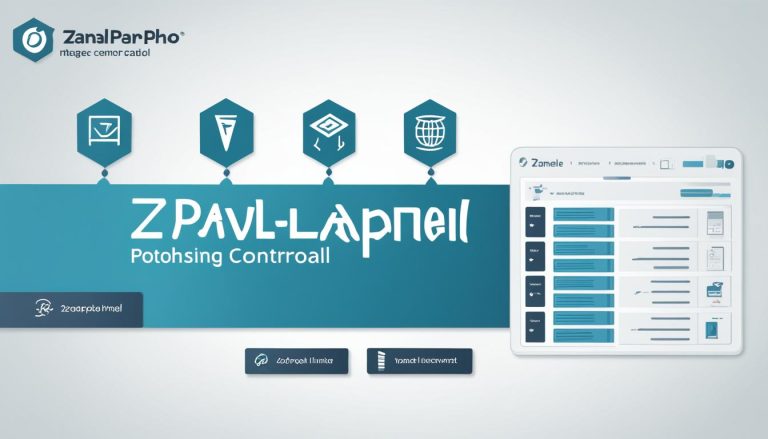Unraveling the Mystery: What is C++? An Informative Overview.
Welcome to my article on C++! In this overview, we will delve into the world of C++ programming language, exploring its basics and unlocking its secrets. Whether you’re a seasoned developer or just starting out in the world of coding, understanding C++ is essential for anyone interested in software development or computer programming.
C++ is a widely used programming language known for its versatility and efficiency. It was developed as an extension of the C programming language and includes features such as object-oriented programming, generic programming, and low-level memory manipulation. C++ is commonly used in application and system software development, and it has influenced the development of other languages such as Java and C#.
Now, let’s dive into the basics of C++ and unravel the mystery behind this powerful programming language!
Key Takeaways:
- C++ is a versatile and efficient programming language
- It was developed as an extension of the C programming language
- C++ includes features such as object-oriented programming and low-level memory manipulation
- C++ is commonly used in application and system software development
- Understanding the basics of C++ is essential for anyone interested in software development or computer programming
The Features and Benefits of C++
C++ offers a wide range of powerful features that make it a popular choice among developers. Its versatility and efficiency make it a go-to language for various applications. One of the key benefits of C++ is strong type checking, which helps identify errors at compile time, minimizing runtime issues. This feature ensures that the code is robust and reliable, enhancing the overall quality of the software.
Another significant advantage of C++ is its support for object-oriented programming (OOP). With OOP, developers can structure their code in a modular way, making it easier to understand, maintain, and reuse. C++ also allows for low-level memory manipulation, providing developers with precise control over hardware resources. This makes it an ideal choice for system programming and developing applications that require direct access to hardware functionalities.
Furthermore, C++ is known for its performance and efficiency. Its ability to compile directly to machine code allows it to execute quickly, making it suitable for applications that demand high-speed execution, such as games or real-time systems. C++ also has a rich standard library that provides a wide range of pre-built functions and data structures, allowing developers to write efficient and optimized code.
“C++ provides developers with the flexibility and power to create high-performance and reliable software solutions. Its features and benefits make it a valuable tool for anyone looking to enhance their programming skills and develop robust applications.”
C++ Features at a Glance:
- Strong type checking for robust software
- Support for object-oriented programming for code reuse and modularity
- Low-level memory manipulation for precise hardware control
- High-performance execution for demanding applications
- Rich standard library for efficient code development
By learning C++, developers can gain a solid understanding of these features and leverage them to build powerful and efficient software solutions. Whether you are interested in system programming, game development, or any other software domain, mastering C++ can open up a world of possibilities.
| Feature | Benefits |
|---|---|
| Strong type checking | Identifies errors at compile time, resulting in more robust software |
| Object-oriented programming | Code reuse and modularity for easier development and maintenance |
| Low-level memory manipulation | Precise control over hardware resources for system programming |
| High-performance execution | Fast execution for applications that require speed and efficiency |
| Rich standard library | Provides a wide range of pre-built functions for efficient code development |
Understanding C++ Syntax and Concepts
Learning the syntax and concepts of C++ is crucial for writing effective and readable code.
C++ syntax encompasses various elements such as variables, data types, operators, control statements, and functions. Mastering these concepts allows programmers to write programs that perform specific tasks while adhering to the rules of the C++ language.
Variable declaration and initialization are fundamental concepts in C++. Variables store data, and their types determine the kind of data they can hold. Some commonly used data types in C++ include integers (int), floating-point numbers (float), characters (char), and Boolean values (bool).
Control statements, such as if-else statements, loops, and switch-case statements, help create logic and control the flow of a program. Functions, on the other hand, are reusable blocks of code that perform specific tasks and can be called multiple times within a program.
Object-oriented programming (OOP) is another significant concept in C++. Encapsulation, inheritance, and polymorphism are key principles of OOP. Encapsulation involves combining data and methods into objects to achieve data hiding and code organization. Inheritance enables the creation of new classes based on existing ones, allowing for code reuse. Polymorphism allows objects of different classes to be treated as objects of a common base class, enabling dynamic behavior and flexibility in program design.
C++ Beginners Guide
For beginners looking to learn C++, there are various resources available. Online tutorials, video courses, and programming books provide a solid foundation in the language. Websites like Codecademy, Udemy, and Coursera offer comprehensive courses designed specifically for beginners. These resources often include practical examples and exercises to facilitate hands-on learning.
Books dedicated to C++ programming are also valuable resources. They cover the fundamentals of the language and provide in-depth explanations of concepts and syntax. Some popular books for beginners include “C++ Primer” by Stanley B. Lippman, “Programming: Principles and Practice Using C++” by Bjarne Stroustrup (the creator of C++), and “Effective Modern C++” by Scott Meyers.
Choosing the right resource depends on learning style and goals. Some individuals may prefer interactive online courses, while others may find books more conducive to their learning process. Regardless of the chosen resource, consistent practice and hands-on coding are key to mastering C++.
The Role of C++ in Modern Technology
C++ programming language is an indispensable tool in modern technology, playing a vital role in various domains. It is widely used in operating systems such as Windows and Linux, where its efficiency and low-level control over hardware resources are highly advantageous. Additionally, C++ finds significant application in embedded systems, ranging from real-time control systems to microcontrollers, enabling the development of robust and reliable technologies.
The gaming industry also heavily relies on C++ for creating high-performance and immersive gaming experiences. Its speed, versatility, and ability to directly access hardware resources make it the language of choice for game developers. C++ is known for its computation and graphical capabilities, allowing for the creation of visually stunning and realistic game environments.
In the finance industry, C++ is widely used for developing trading systems. Its ability to handle complex calculations and efficient memory management makes it an ideal choice for processing large amounts of financial data in real-time. Moreover, scientific research heavily depends on C++ for computational modeling and simulations, providing researchers with the power and flexibility required for advanced scientific analysis.
| Industry | Applications |
|---|---|
| Gaming | High-performance game development, graphics programming |
| Operating Systems | Development of Windows, Linux, and other operating systems |
| Embedded Systems | Real-time control systems, microcontroller programming |
| Finance | Trading systems, financial data processing |
| Scientific Research | Computational modeling, simulations |
Understanding C++ is therefore essential for anyone interested in pursuing a career in technology. The versatility and wide-ranging applications of C++ make it a highly sought-after skill in industries such as gaming, operating systems, embedded systems, finance, and scientific research. By mastering C++, professionals can unlock a world of career opportunities and contribute to the development of groundbreaking technologies.
Resources for Learning C++
When it comes to learning C++, there are a wealth of resources available to help beginners get started. Whether you prefer online tutorials, video courses, or traditional programming books, there are options to suit every learning style and preference.
One popular online resource is Codecademy, which offers a comprehensive C++ tutorial for beginners. Their interactive learning platform allows you to practice coding directly in your browser, making it easy to apply what you’ve learned right away. Another option is Udemy, which offers a variety of C++ courses taught by industry professionals. These video-based courses provide a more structured learning experience and often include hands-on exercises and projects.
If you prefer learning from books, there are many great options available. One highly recommended beginner’s guide is “C++ Primer” by Stanley B. Lippman, Josée Lajoie, and Barbara E. Moo. This book covers the fundamentals of C++ programming and includes numerous examples and exercises to reinforce your understanding. Another popular choice is “Programming: Principles and Practice Using C++” by Bjarne Stroustrup, the creator of C++. This book offers a comprehensive introduction to programming using C++ and provides a solid foundation for further exploration.
With the right resources at your disposal, learning C++ can be an enjoyable and rewarding journey. Whether you prefer online tutorials or books, take advantage of the wealth of knowledge available and start building your skills in this powerful programming language.
Table: Comparison of C++ Learning Resources
| Resource | Format | Features | Cost |
|---|---|---|---|
| Codecademy | Online tutorial | Interactive learning platform, hands-on coding exercises | Free basic access, premium subscription available |
| Udemy | Video courses | Taught by industry professionals, structured learning experience | Course prices vary, frequent discounts available |
| “C++ Primer” by Stanley B. Lippman, Josée Lajoie, and Barbara E. Moo | Book | Covers fundamentals, examples, and exercises | Available for purchase |
| “Programming: Principles and Practice Using C++” by Bjarne Stroustrup | Book | Comprehensive introduction to programming using C++ | Available for purchase |
As you embark on your journey to learn C++, remember that consistency and practice are key. Dedicate regular time to study and apply what you’ve learned through coding exercises and projects. With perseverance and the right resources, you’ll soon be on your way to becoming proficient in this powerful programming language.
C++ vs. Other Programming Languages
When comparing C++ to other programming languages, it becomes clear that each language has its own unique features and strengths. Let’s take a closer look at how C++ stacks up against some popular alternatives:
C++ vs Java
C++ and Java are both object-oriented languages, but they differ in terms of platform independence. Java is known for its “write once, run anywhere” capability, making it suitable for developing cross-platform applications. On the other hand, C++ provides low-level control and is often favored for system-level programming and performance-critical applications.
C++ vs Python
C++ and Python have contrasting design philosophies. C++ emphasizes efficiency and performance, making it a strong choice for resource-intensive tasks. Python, on the other hand, focuses on readability and ease of use, making it popular for rapid prototyping and scripting. Python’s extensive libraries and frameworks also contribute to its popularity in fields such as data science and web development.
C++ vs PHP
C++ and PHP serve different purposes in the development landscape. PHP is a server-side scripting language primarily used in web development, specifically for building dynamic websites and applications. C++ is a general-purpose language that offers greater flexibility and control over low-level system programming. While both languages have their place, C++ is often preferred for applications that require high performance, such as game development or system software.
C++ vs Ruby
C++ and Ruby cater to different programming paradigms. C++ is a statically-typed language that emphasizes efficiency and control, making it well-suited for high-performance applications. Ruby, on the other hand, is a dynamic and expressive language known for its simplicity and readability. Ruby’s focus on developer productivity and ease of use has made it a popular choice for web development and scripting tasks.
C++ vs Rust
Rust and C++ share similarities in terms of performance and low-level control. However, Rust’s focus on memory safety, concurrency, and developer productivity sets it apart. Rust’s strict borrow checker helps prevent common programming errors such as null pointer dereferences and data races. While C++ is still widely used, Rust has gained popularity, particularly in systems programming and projects that prioritize safety and reliability.
C++ vs Go
C++ and Go have different design goals and use cases. C++ offers extensive control over system resources and hardware, making it suitable for applications that require low-level programming. Go, on the other hand, focuses on simplicity, efficiency, and concurrency, making it a popular choice for building scalable and concurrent systems. Go’s built-in support for concurrent programming and its straightforward syntax contribute to its growing popularity.
C++ vs C
C++ is often compared to its predecessor, C, as they share a similar syntax and heritage. C++ extends C’s functionality by adding features such as classes, templates, and object-oriented programming capabilities. While C is a lower-level language primarily used for system programming and embedded systems, C++ provides a higher level of abstraction and features that enable more advanced programming techniques.
The Future of C++
As a widely used programming language, C++ has a bright future ahead. Despite the emergence of newer languages, C++ continues to evolve and maintain its relevance in the technology industry. With regular updates to the C++ standard, the language introduces new features and improves its capabilities, ensuring that it remains a powerful tool for software development.
C++ advancements focus on enhancing performance, productivity, and safety in development. These advancements enable developers to write more efficient code, resulting in faster and more reliable software. With improved language features, C++ continues to meet the changing needs of modern software development, ensuring that it remains a valuable skill for aspiring programmers.
The future of C++ lies in its adaptability and innovation. As technology evolves, C++ will continue to play a crucial role in various domains such as operating systems, embedded systems, game development, finance, and scientific research. By staying up to date with the latest advancements in C++, developers can leverage the language’s capabilities to create innovative solutions that drive technological progress.
Advancing the Field of Technology
With its versatility and efficiency, C++ will continue to shape the field of technology. The language’s low-level control over hardware resources makes it ideal for system programming, while its object-oriented features enable code reuse and modular development. C++ is also renowned for its performance, making it a preferred choice for applications that require fast execution.
Furthermore, the demand for professionals with C++ expertise remains high in various industries, including technology, finance, gaming, and automotive. Proficiency in C++ opens up exciting career opportunities, with job titles ranging from software engineer to game developer. Additionally, mastering C++ provides a strong foundation for learning other programming languages, expanding career options even further.
| C++ Advancements | Benefits |
|---|---|
| Improved performance | Enables faster and more efficient software |
| Enhanced productivity | Facilitates more efficient coding and development processes |
| Enhanced safety | Reduces the risk of errors and vulnerabilities |
| Adaptability | Continues to meet the changing needs of technology |
As we look to the future, C++ will undoubtedly continue to thrive as a versatile, efficient, and adaptable programming language. Understanding and harnessing the power of C++ will enable developers to drive technological advancements and shape the future of software development.

Career Opportunities with C++
Proficiency in C++ opens up a wide range of career opportunities for developers in various industries. Companies across technology, finance, gaming, and automotive sectors are actively seeking professionals with strong C++ skills. With the increasing demand for software developers and engineers, having expertise in C++ can give you a competitive edge in the job market.
Job titles that often require proficiency in C++ include software engineer, systems programmer, game developer, embedded systems engineer, and more. These roles involve developing and maintaining software applications, systems, and infrastructure using C++. As a C++ professional, you’ll have the opportunity to work on cutting-edge projects, solve complex problems, and contribute to the development of innovative solutions.
Furthermore, mastering C++ can also serve as a strong foundation for learning other programming languages. By understanding the fundamentals of C++, you’ll gain a deeper understanding of computer science principles and programming concepts. This knowledge can pave the way for exploring new technologies and expanding your career options even further.
| Job Title | Description |
|---|---|
| Software Engineer | Design, develop, and test software applications using C++ and other programming languages. |
| Systems Programmer | Write code to create and maintain operating systems and software infrastructure. |
| Game Developer | Create interactive and immersive gaming experiences using C++ for performance-critical components. |
| Embedded Systems Engineer | Develop software for embedded systems such as microcontrollers and real-time control systems. |
If you’re passionate about technology and enjoy problem-solving, a career with C++ can be both fulfilling and rewarding. Keep in mind that the demand for C++ professionals is likely to continue growing as technology advances and new applications are developed. By staying up-to-date with the latest trends and continuously expanding your skills, you’ll be well-positioned for success in the ever-evolving field of software development.
Conclusion
In conclusion, C++ is a powerful and versatile programming language that offers numerous benefits and opportunities. With its strong type checking, support for object-oriented programming, and low-level control over hardware resources, C++ is favored by developers for its performance and efficiency. By understanding the syntax and concepts of C++, beginners can start creating their own programs and applications.
C++ plays a vital role in modern technology, with applications in operating systems, embedded systems, game development, finance, and scientific research. With a wide range of resources available for learning C++, beginners can enhance their skills and grasp the fundamentals of the language. Furthermore, comparing C++ to other programming languages provides valuable insights into its strengths and weaknesses, enabling developers to choose the best tool for their projects.
The future of C++ is promising, with regular updates to the C++ standard introducing new features and improving language capabilities. As such, proficiency in C++ opens up various career opportunities in industries such as technology, finance, gaming, and automotive. Whether pursuing a career as a software engineer, systems programmer, game developer, or embedded systems engineer, mastering C++ can lead to exciting prospects and a strong foundation for learning other programming languages.
FAQ
What is C++?
C++ is a widely used programming language known for its versatility and efficiency. It was developed as an extension of the C programming language and includes features such as object-oriented programming, generic programming, and low-level memory manipulation.
What are the features and benefits of C++?
C++ offers strong type checking, support for object-oriented programming, low-level hardware control, and high performance. These features make it suitable for a wide range of applications, ranging from system software development to game development and scientific research.
What are the syntax and concepts of C++?
The syntax of C++ includes elements such as variables, data types, operators, control statements, and functions. Understanding these concepts is crucial for writing effective and readable code.
What are the applications of C++ in modern technology?
C++ is commonly used in operating systems, embedded systems, game development, finance, and scientific research. It has a wide range of applications in various domains.
Where can I find resources for learning C++?
There are numerous online tutorials, video courses, and programming books available for learning C++. Websites like Codecademy, Udemy, and Coursera offer comprehensive courses for beginners. Additionally, there are many books available that cover the fundamentals of C++ and provide practical examples and exercises.
How does C++ compare to other programming languages?
C++ has its own unique features and use cases. It is often compared to languages like Java, Python, PHP, Ruby, Rust, Go, and its predecessor, C. Understanding the similarities and differences between C++ and other languages can help developers choose the best tool for their specific project requirements.
What does the future hold for C++?
The C++ standard is regularly updated, introducing new features and improving language capabilities. The future of C++ involves continued innovation and adaptation to meet the changing needs of modern software development.
What career opportunities are available with C++?
Proficiency in C++ opens up various career opportunities in industries such as technology, finance, gaming, and automotive. Job titles such as software engineer, systems programmer, game developer, and embedded systems engineer often require expertise in C++.
- About the Author
- Latest Posts
Mark is a senior content editor at Text-Center.com and has more than 20 years of experience with linux and windows operating systems. He also writes for Biteno.com






